“बाँस छ र नै मने छ… मने छ र नै बाँस… धन्न बाँस छ र मने बाँसुरी बजाउँदै हिड्छ… नत्र मने कसैको खुट्टा को काङ्ग्लिङ्ग बजाएर हिड्ने जोगी हुन्थ्यो होला” – Subash Ghising in मने
This quote from his book “Maney” – which I have tried my best to recollect from my memory – is perhaps the closest we will ever come to understand the Man that Subash Ghising was. It provides a rare insight into his psyche, as a young man. The intensity of purpose, and fierce loyalty towards that purpose is perhaps what best defined Subash Ghising and his political career. Be it his most loyal of supporters, or his fiercest detractors, no one in this world can claim to completely understand him.
Thus, it wouldn’t be wrong to say that for everyone Subash Ghising was a mystery, wrapped in an enigma, inside the Pandora’s box.
This is my humble attempt at eulogizing and paying homage to the greatest politician Darjeeling has yet seen.
THE MAN
Born into a humble family on June 22, 1936 at Manju Tea Estate in Mirik, Subash Ghising was the sixth child, out of the seven children his parents had. His father was the garden babu and mother was a homemaker.
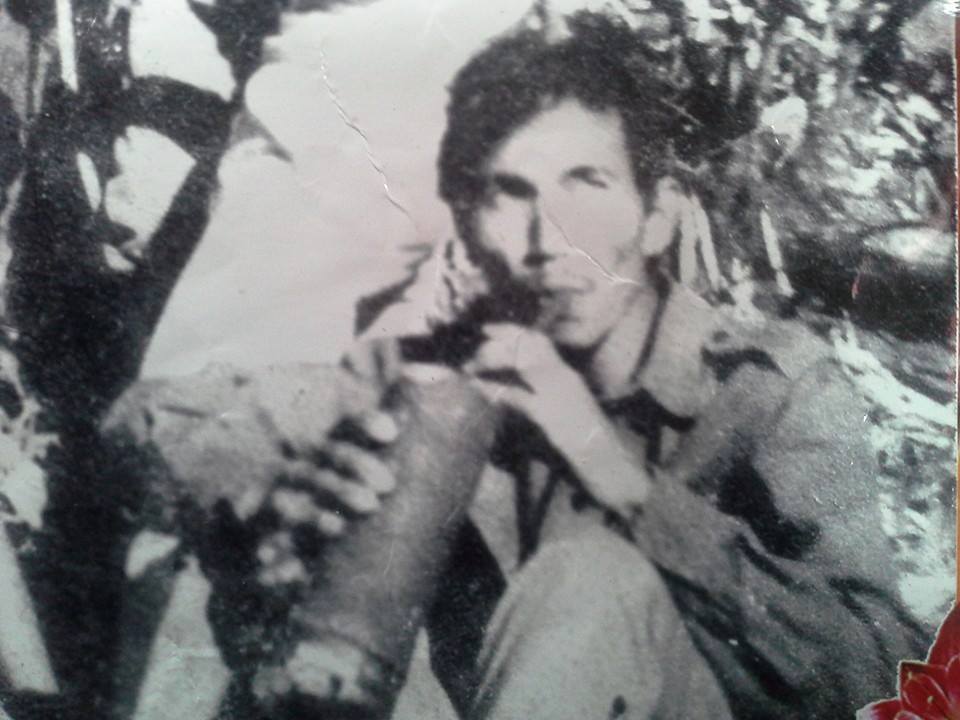
Growing up years were difficult for Subash as his father passed away when he was still in class IX, which caused him to leave school and join the Army in 1954. Joining the army was both a blessing as well as a curse, blessing in that while he was in the army he could complete his Matriculation in 1959, and curse in that his conscience did not permit him to remain in the army, as India for all intent and purpose still considered all the Nepalis to be foreigners – not Indians, but citizens of Nepal.
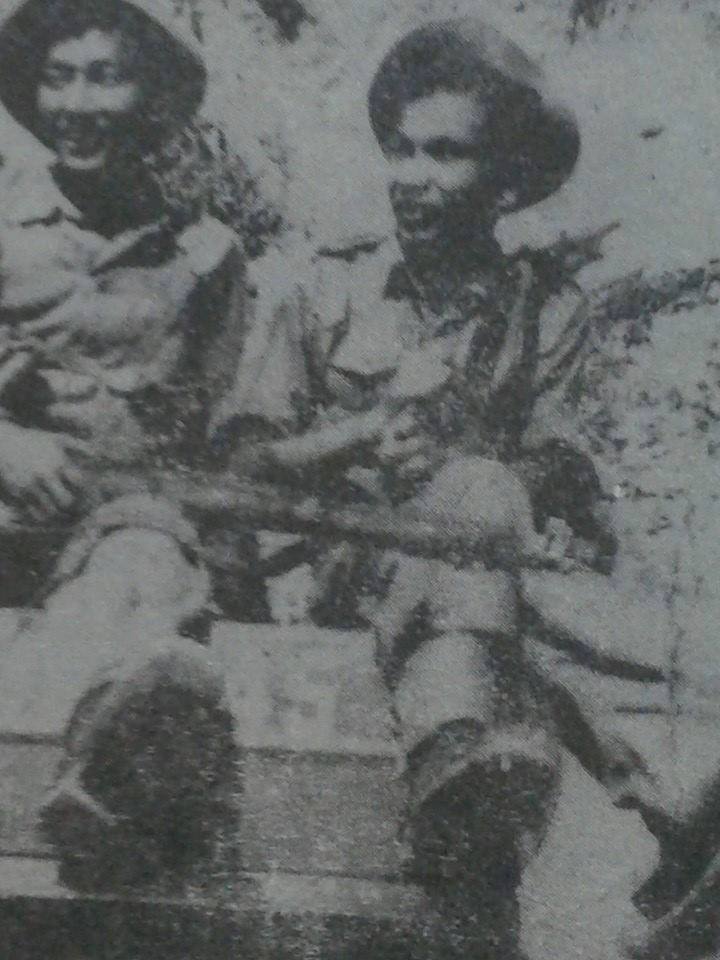
In 1960 Subash had had enough of his internal conflict and with a resolve to do something about the “identity crisis” that Indian citizens of Nepali ethnicity faced, he quit the army and came back to Darjeeling.
His matriculation served him well and he landed a job as a teacher at the Tindharey Bangla Primary School in 1961. However, he only taught there for a year and left for Kalimpong to acquire a teaching diploma from the Junior BT College in 1962. Subash was a rebellious child, and had grown up to become a rebellious young man, he quit his erstwhile college midway after an altercation with the college Principal.
In 1963, Subash joined Darjeeling Government College where he completed his Class XII degree (which was then called Intermediate Degree in Arts or IA degree) from there. Following this, he enrolled himself for undergraduate degree at the same institution.
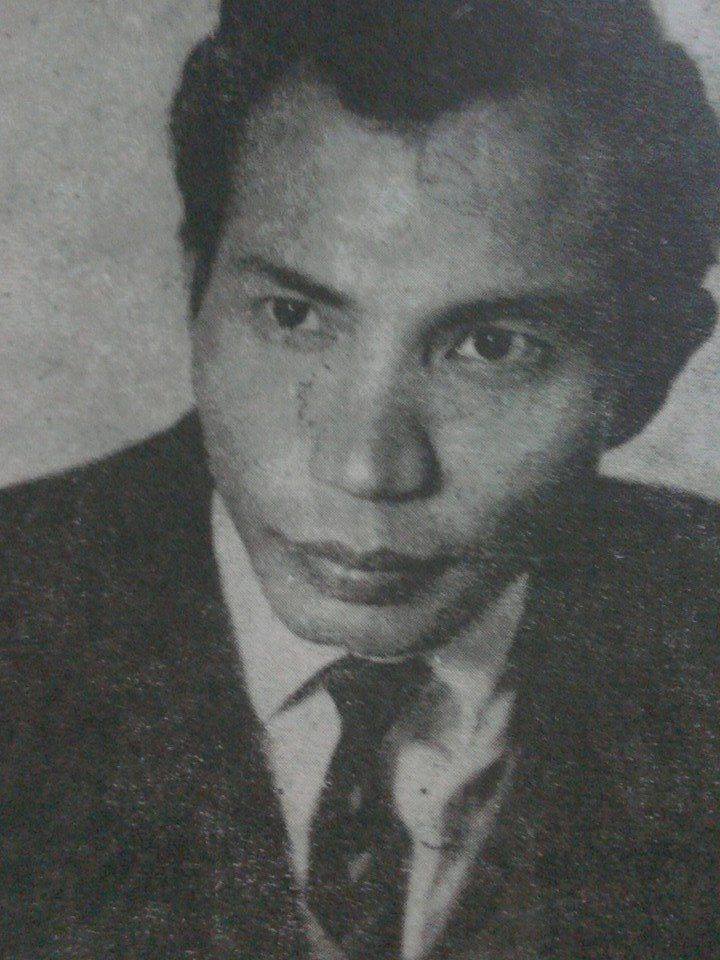
It was during his time at the Darjeeling Government College that
Sadly it was his involvement in politics which got him to quit college in the 2nd year, after he was arrested during a political rally protesting against the poor socio-economic condition of the hill people.
HIS POLITICS
Perhaps it was a harbinger of times to come, Subash eventually formed his first political organization ‘Nilo Jhanda” in the year 1968 to highlight the various socio-economic deprivation that hill people had to face. My mother tells me that during the decade of 1968 to 1978, no one in Darjeeling took Subash Ghising seriously. Nonetheless, armed with ample fortitude, Subash was relentless in his endeavour.
Let me recall for you an incident which was narrated to me by my mother. It highlights his fierce determination and sense of purpose, my mother reminisces, “back around 1970s Subash Ghising was pretty much a one man show… he would carry with him a flag and a dhondhoro (horn) and go from village to village, speaking on whatever issue tickled his fancy that day… one day he was doing the same at a daara (small hill) near Rangbull bazaar when an individual irritated by his voice emanating from the loud dhondhoro chased Subash with a Khukuri in his hands… Subash ran to save his life… he must have disappeared for a while, but he surfaced after a few days, and from the same spot from where he had been chased away earlier, he started his speech exactly where he had left… with the words… ‘Astee malai khednu bhanda aghee mailey bhandai thye…. as I was saying the other day, before I was chased”… His former aggressor apparently did not bother to chase him this time around.
His quest for political relevance saw Ghising join Prant Parishad where his contemporaries included Nepali literary great Indra Bahadur Rai, and Late. Madan Tamang among others, and for the first time on 22 April 1979, Subash raised the demand for a separate state for the Nepali-speaking people of the Darjeeling region.
During his Prant Parishad days, Subash’s rhetoric and the issues he spoke on attracted considerable support from the youth, which eventually culminated in him forming a separate political outfit, the Gorkha National Liberation Front (GNLF).
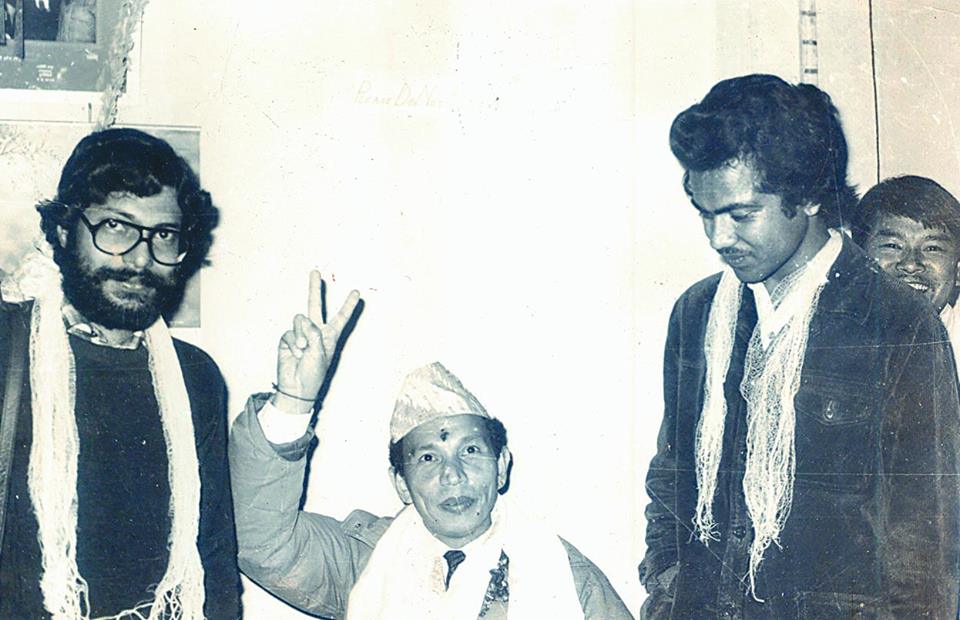
THE LEGEND
While
The ambiguity surrounding the “citizenship” of Nepalis in
Stupid
As if the humiliation meted out by the then Prime Minister was
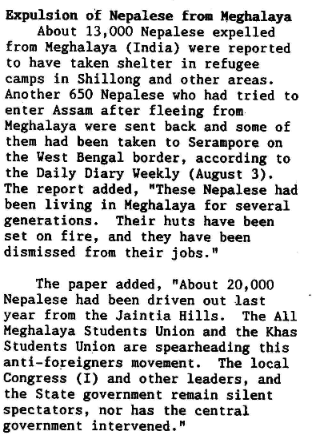
It
These two incidents had
His political acumen can be understood in the fact that the flag of his political party itself carried his political philosophy, vision and agenda which he set out to fulfill. He explained the GNLF Flag as follows:
Khukuri: जातीय चिन्ह Racial [Ethnic] Symbol
Three stars: लक्ष्य Destiny [Mission]
The colour Green: आत्म विश्वास Self Confidence [Green = Youthful as in spring]
4 Golden Lines: समानता स्वतन्त्रता भ्रातित्व अवसर – Equality, Liberty, Fraternity, Opportunity
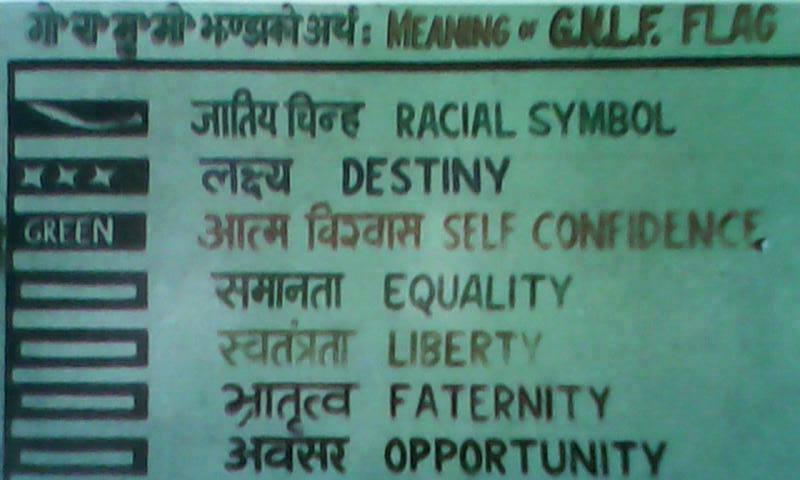
It was only in 2011 that he finally divulged his three goals/destiny/mission, as represented in the three stars on the GNLF Flag
He explained that for any community to survive and thrive it requires three key things – i) Citizenship, ii) Identity as a recognized community within a country and iii) protection of their culture and traditions, this he represented through the three stars on the GNLF Flag, which he then set out to achieve for the Indian Gorkhas.
Did he achieve the three key things for India Gorkhas? Let’s examine…
The 1st Star – “Citizenship”
Back when he launched the Gorkhaland statehood movement, the
He repeatedly said that DGHC and whatever other administrative set up came as a result of the movement was a bonus, his primary objective was to ensure that a constitutional guarantee for the Indian Gorkhas was assured.
Indeed the Government of India following the signing of the Darjeeling Gorkha Hill Council (DGHC) accord issued an Extraordinary Gazette Notification on the Citizenship issue of Gorkhas, which was published on the 23rd of August 1988, in the Gazette of India Extraordinary Part – I Section 1 No. 26011/6/88-ICI. It stated the following facts:
“Whereas it has come to the notice of the Central Government that there have been some misconception about the citizenship at the commencement of the Constitution of India of certain classes of person commonly known as Gorkhas, who had settled in India at such commencement.
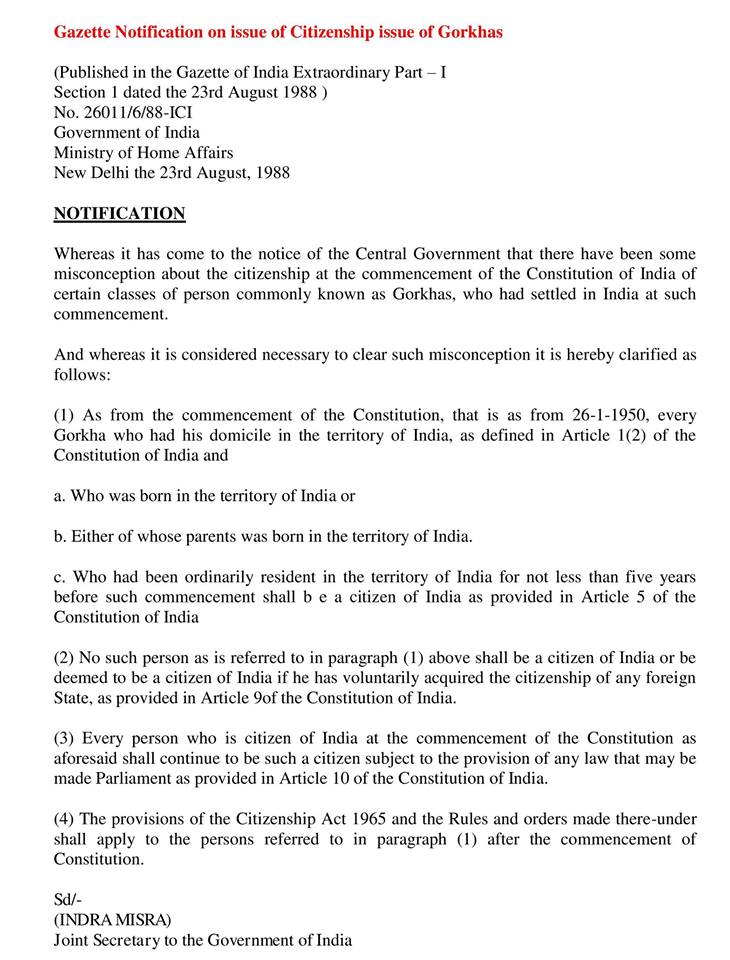
This notification solved the ambiguity surrounding our citizenship, and the issue was forever resolved… or so we thought.
The 2nd Star – “Identity”
It is to the credit of Subash that the term “GORKHA” was added to the 1st administrative set up of the Darjeeling region, the Darjeeling Gorkha Hill Council (DGHC), which, as powerless as it may have been, was the 1st administrative body ever in India which included the term “GORKHA” in it. Later the GJM championed the “Gorkhaland” cause and now we have “Gorkhaland Territorial Administration” which is as powerless as the DGHC, but at least we have progressed from Gorkha Hill Council to Gorkhaland Territorial Administration. And I am hopeful that someday soon this will lead to our cherished dream, the Gorkhaland statehood.
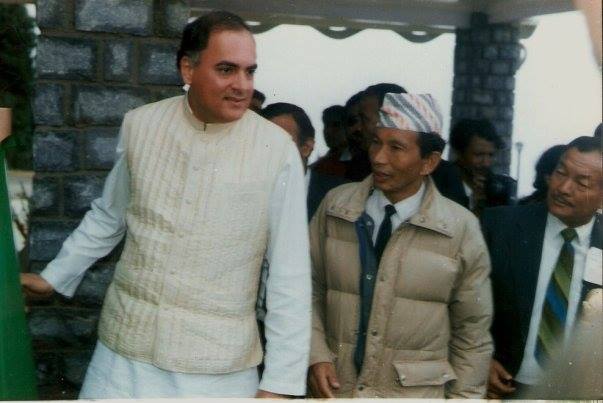
So Subash Ghising deserves applause for awakening the sleeping Gorkhas, and making us face the reality, and also for helping us to realize, and making it known to the others, that united, we the Gorkhas, are a political force.
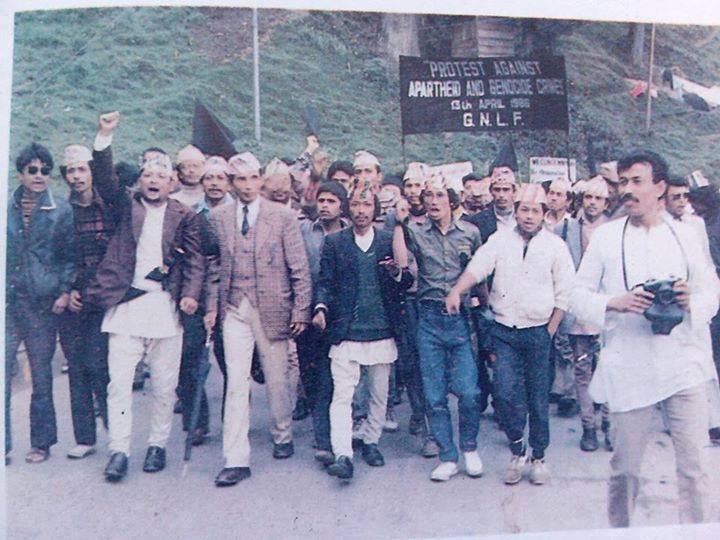
My younger brother Shailendra states it better, as he writes “in the context of his work – when we did not have the slightest idea of a collective identity – and to struggle for it against a state like Bengal and the Indian government deserves our highest salutation… on hindsight, he is to us, what Mahatma is to India – he is that…”
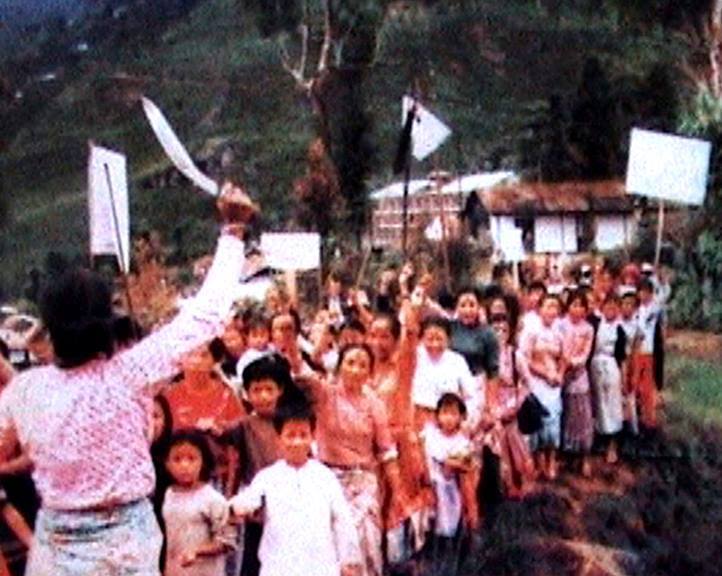
The 3rd Star – “Protection of Our Culture and Traditions
For any community anywhere in the world to thrive, the conservation
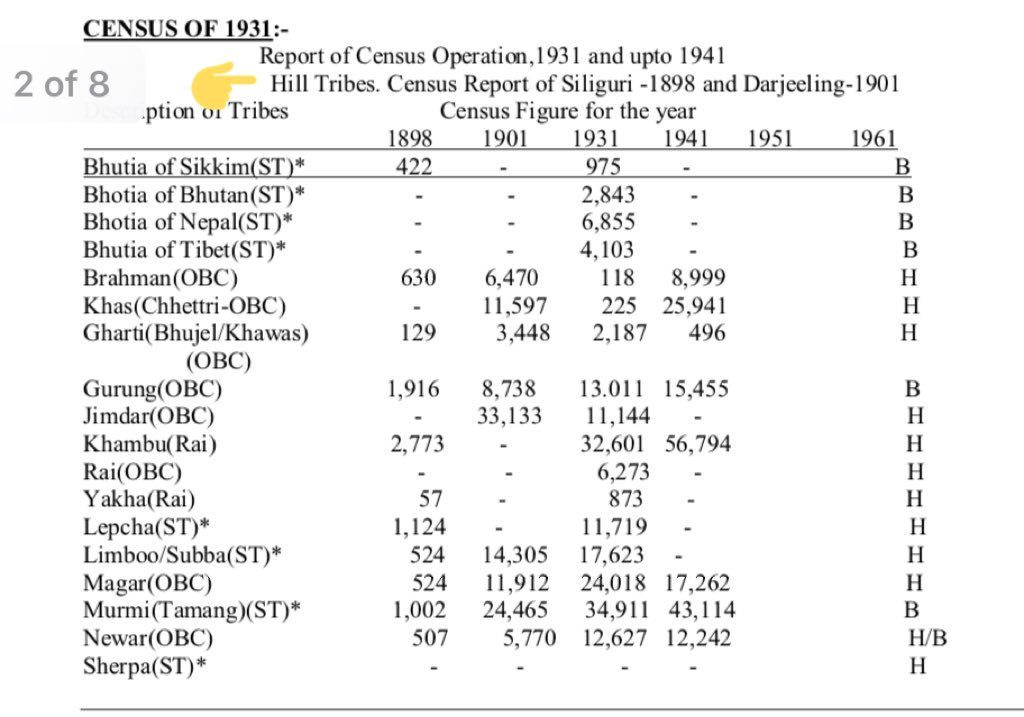
Post-independence however, the hill people were divided into various factions – some were called ST, some SC, some OBC and some General.
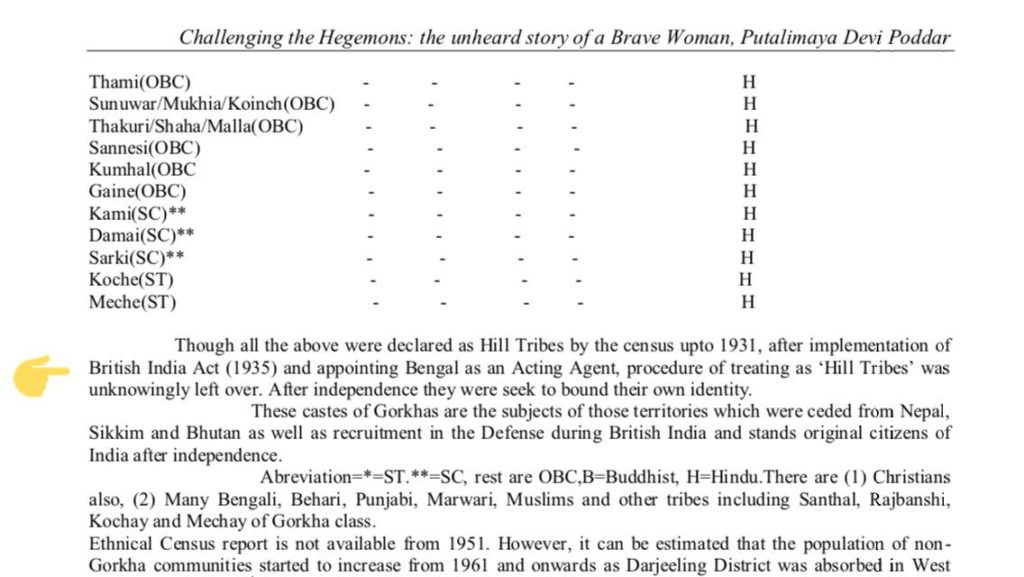
Subash feared that this would lead to division amongst us, and would weaken us from inside. He felt that if we could get legislative powers, this historic wrong could be undone. As the DGHC did not have any legislative power granted to it, Subash pursued the easiest route to getting autonomous legislative powers – through the inclusion of the Darjeeling region and all the communities residing here under the Scheduled- VI of the Indian constitution.
Areas under the British, with considerable “tribal”
Subash had envisioned that by bringing Darjeeling under the Schedule VIth of the Indian Constitution, we would finally get the legislative power that would not only protect our socio-cultural heritage and identity as the ‘hill tribes,’ but it would eventually lead to the formation of Gorkhaland statehood. If we are to revisit history almost all the North East states (except Assam) were at one point of time governed under the Schedule VIth of the Indian constitution. So this, he believed, would ensure the protection of our unified identity as “Hill Tribes” as mentioned by the British back in 1931.
The Bengal government had even approved the inclusion of Darjeeling region under the VIth Scheduled of the Indian constitution back in 2005 itself, but it needed constitution to be amended for formal inclusion, and as the CPI(M) was at loggerheads with the UPA government over the Nuclear deal issue, the Bill never got introduced in the Parliament. Had it been approved,
If nothing else, perhaps we would not be
Thus, from my
THE LEGACY
Never before in the history of politics from Darjeeling region did
But I was most shocked to note that, speaking at a public rally on the 27th of July 2001 at Chowrasta, he had said, “Darjeeling pahar ma arkai political atmosphere bhayera auncha… tyo mailey create gareko hundaina… tyo huri Bangal le pathayeko huncha ani pahar lai nilyeko huncha… tyo samai Hariyo Jhanda (GNLF) silence bhayera baseko huncha…”
Knowing him, I believe he knew that someone else would raise soon to oppose him, and that he would remain quiet all through it… he did remain quiet when GJM was formed and he quietly left Darjeeling, “for the sake of peace in the hills” he had once said.
But perhaps it was this very political acumen wherein lies his
The Gorkhaland andolan of 1986 did help in protecting and asserting the rights of the Gorkhalis across India, but it left behind close to 2000 dead. Families were torn apart, neighbours became enemies, brother killed brother. An entire generation of youths lost their life, limb and their future for the Gorkhaland cause, but at the end he deceived them by accepting a powerless DGHC.
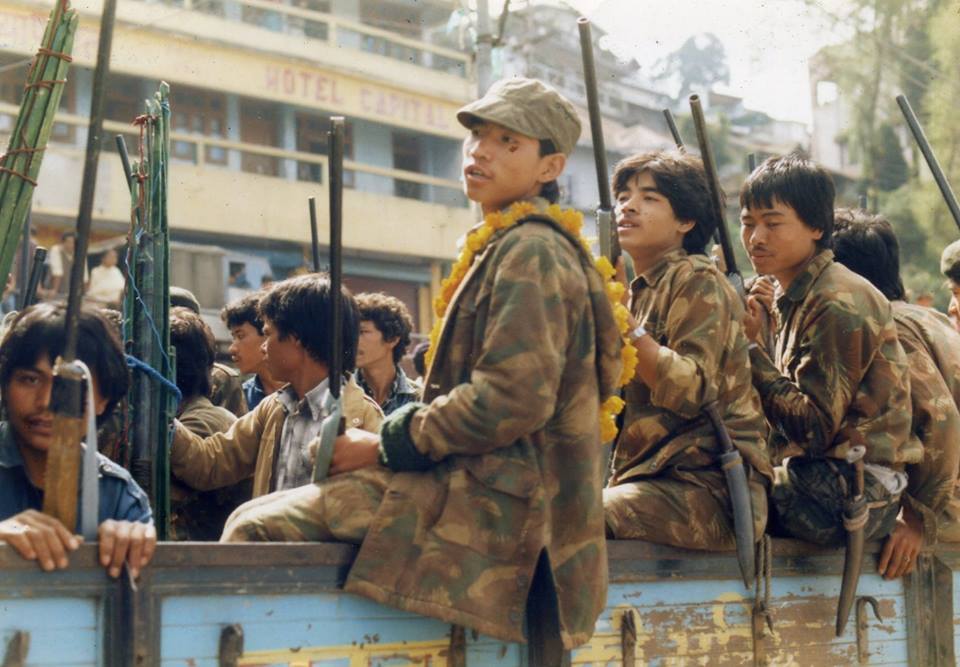
But much worse than that, Darjeeling lost its innocence. The Gorkhaland andolan turned simple, happy go lucky hill youths into a brutal, cunning and greedy bunch of good for nothing louts. People learned how to deceive, steal, cheat, lie and murder. Prior to 1986 even the death of a dog would make news, whereas post 1986 killing of people became so commonplace that we all became indifferent to such acts of savagery and brutality.
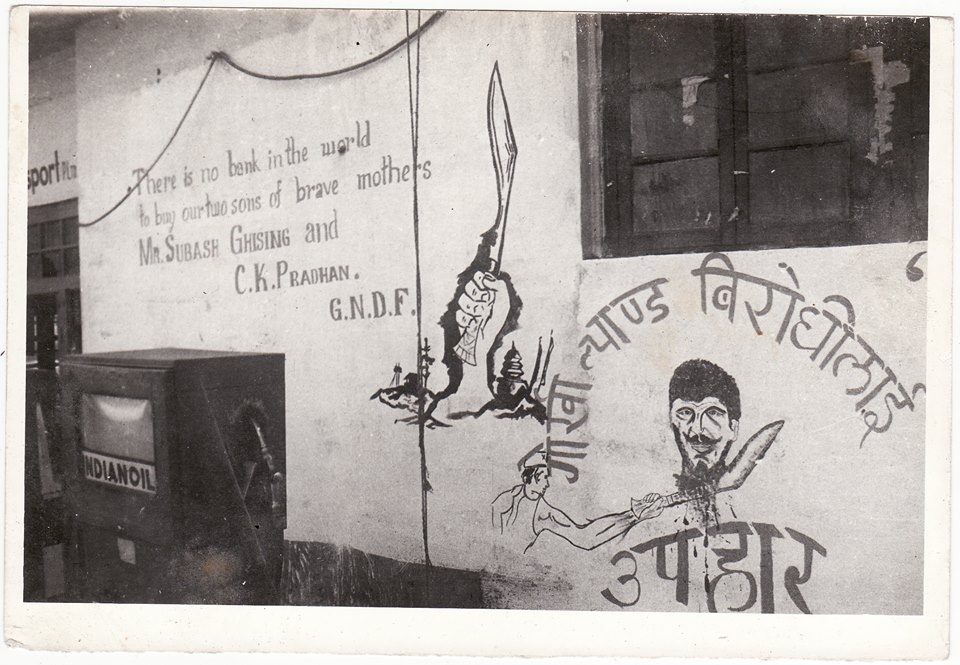
It was under Subash Ghising that the rule of the
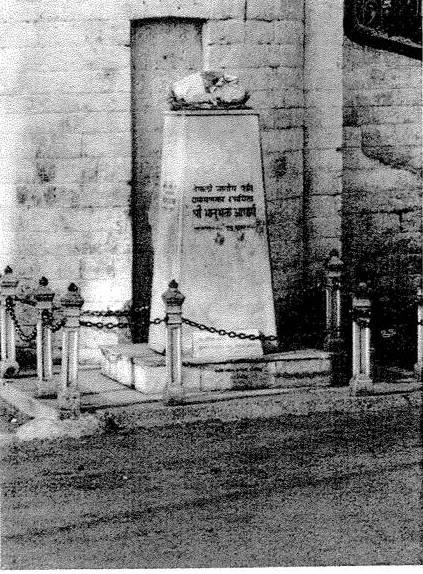
Eventually he became an ego-maniacal despot, and we supported his ascension.
In short, as a result of 1986 andolan, Darjeeling lost its innocence, humbleness, humility and honesty. People of Darjeeling became crooks.
Bimal Gurung, Binay Tamang, Anit Thapa and the lot currently enjoying power in Darjeeling is a direct product of Subash Ghising’s legacy, need I say more?
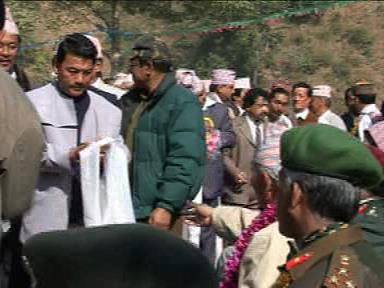
But can we blame Subash alone for this?
Weren’t the then CPI(M) and the current CPRM lot equally responsible for what happened? Aren’t the state of West Bengal and the Central Government just as responsible for what happened to and in Darjeeling? Aren’t we the people equally responsible for letting him slip away, instead of keeping him on the tracks by handing him a few electoral defeats?
However, the fact remains that it was him
It was him who brought out in us a sense of dignity, self worth, and confidence. It was him to whom we can attribute the political awakening amongst Gorkhas not only in Darjeeling, but across India, which has served all the Gorkhalis everywhere in India so well.
Today if a Gorkha from the North East can walk with his head held high, some of that self-assurance and pride can be attributed to Subash Ghising. Today if a Gorkha from Uttarakhand or Himachal can contest an election and win, there is a certain amount of political capital that can be traced back to Subash Ghising. Today if any Gorkha anywhere in India feels proud to call oneself an Indian, it is expressly because of Subash Ghising.
Among all the poets, writers, thinkers, ideologues, philosophers, intellectuals, strategists, academics, scholars, artists, musicians, rebels, misfits, renegades, radicals, dissenters, mutineers and politicians of all hues and colours that Darjeeling has produced, NO ONE… has ever come even close to the aura, the charm, the personality, the charisma, the confidence, and the sense of being and belonging that Subash Ghising exuded.
Today if despite Mamata’s best and worst attempts we have continued to remain a solid unit and have still continued to dream of Gorkhaland, that is because and only because of one man SUBASH GHISING.
This is his true legacy…
A LEGEND UNPARALLELED
I dedicate this article to Dr. Sonam B Wangyal, whose writings have always been an inspiration
*This article was originally published on January 30th, 2015 one day after Subash Ghising had passed away. We are reproducing it on his 4th Death Anniversary today, for the benefit of our readers, who may not have come across this article before.

Subash Ghising when Andolan started 
Gorkhaland – Youths surrendering arms, 1988 
Subash Ghising – the legend 
Subash Ghising – the speaker, the charmer 
Gorkhaland 1988, youths surrendering arms, some were even teenagers 
Subash Ghising inspecting arms surrender 
Party Bhanda Jati thulo… Jati bhanda mato thulo… Binduli Tika K tika… Sindur ko Tika k tika Chandan ko Tika k tika Mato ko tika Raja Tika Mato ko tika Rani Tika Written by: Subash Ghising in 1982 

Subash Ghising in 2011 


Ghoom 1987 – Youths became GVC and later Rowdise 
GVC Flag marching in Ghoom 1987 

Gorkhaland Andolan of 1986 had received unprecedented public support 
Arms surrender by Gorkhaland activists 1988 

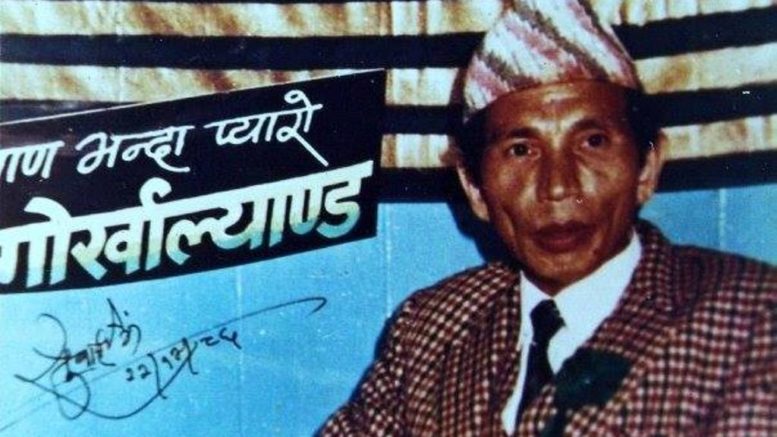
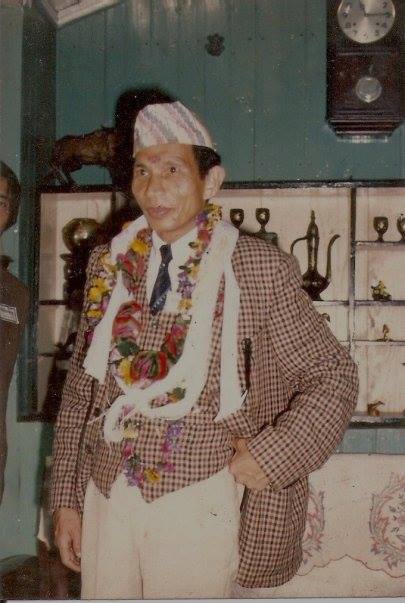
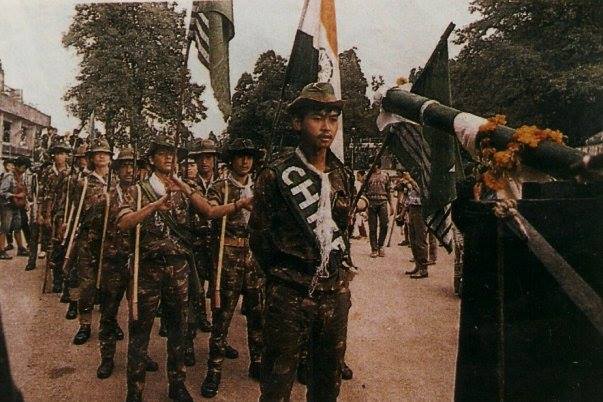
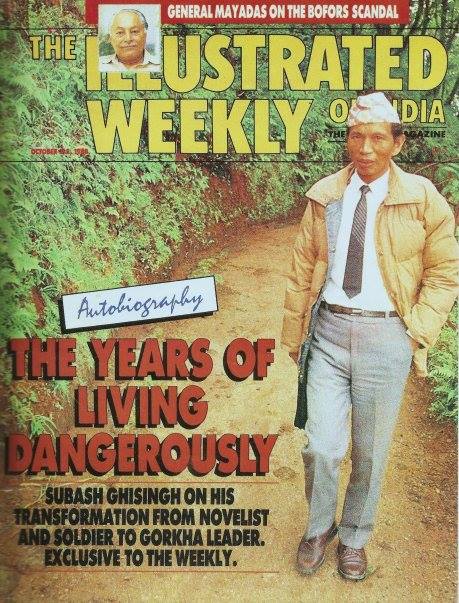
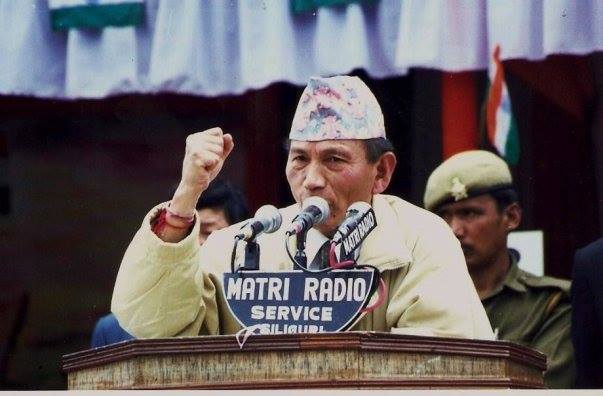
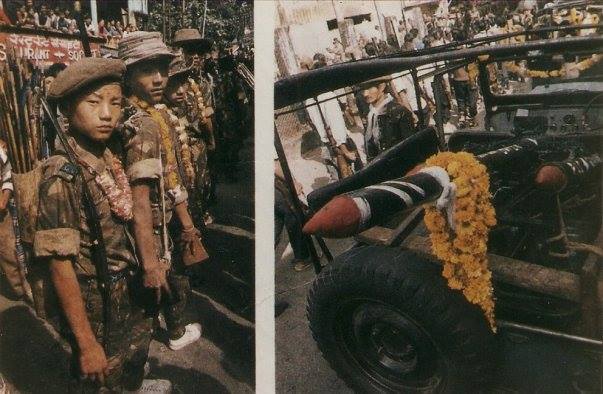
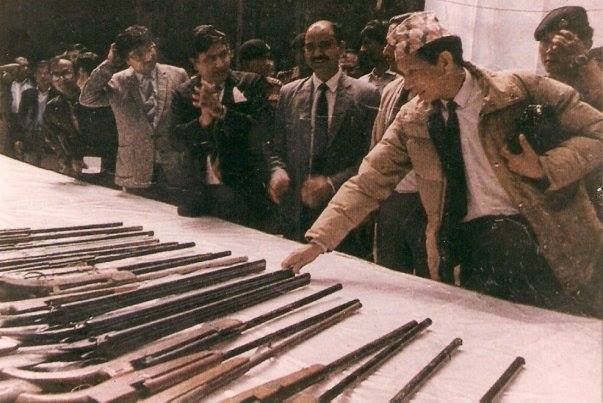
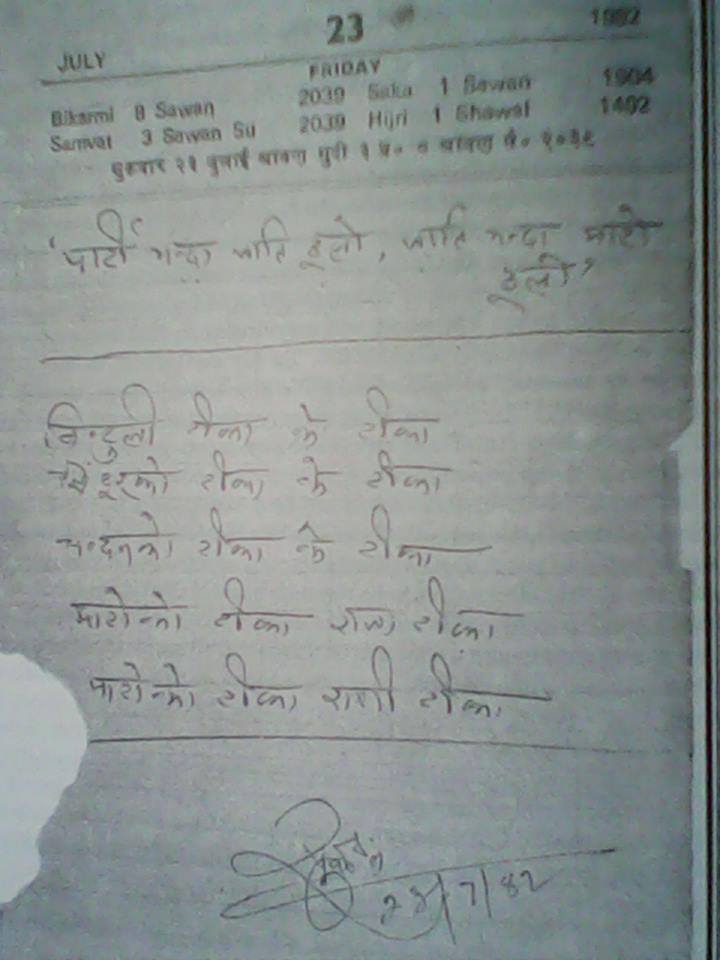
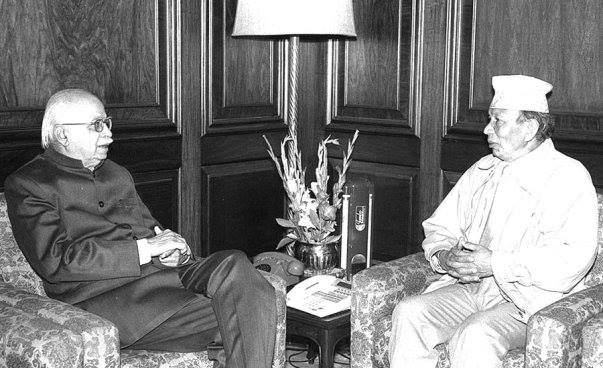
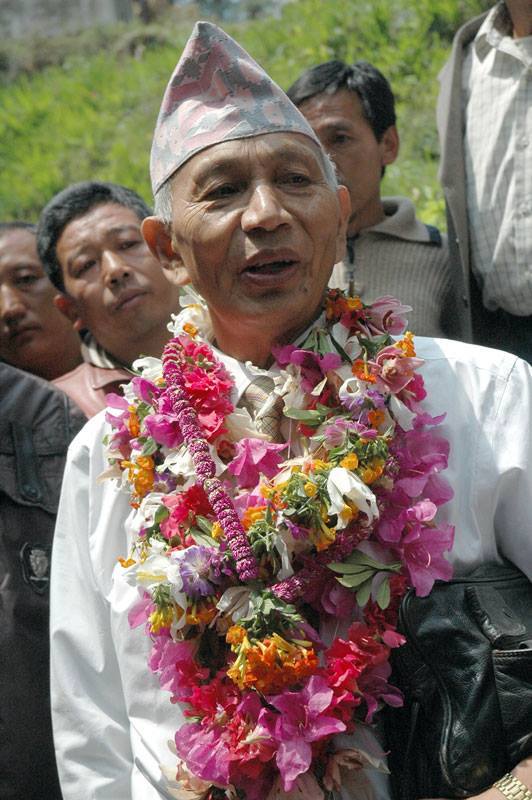
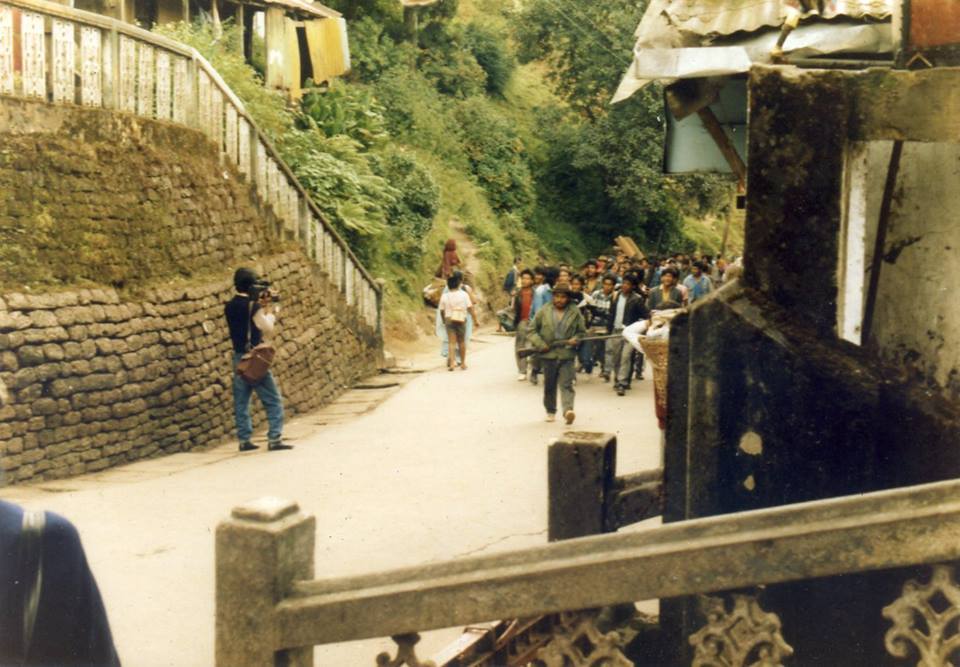
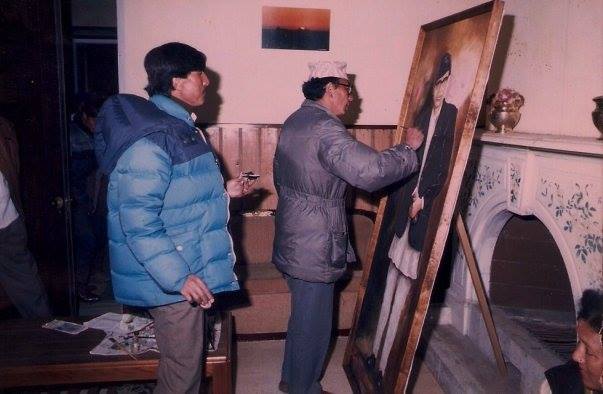
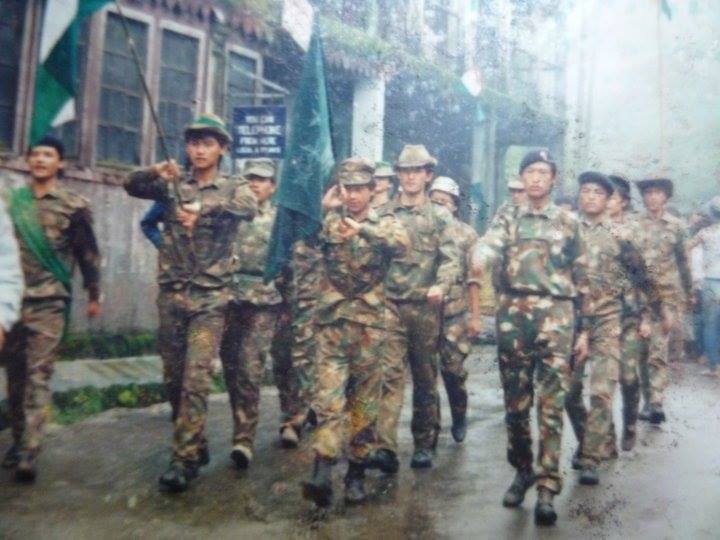
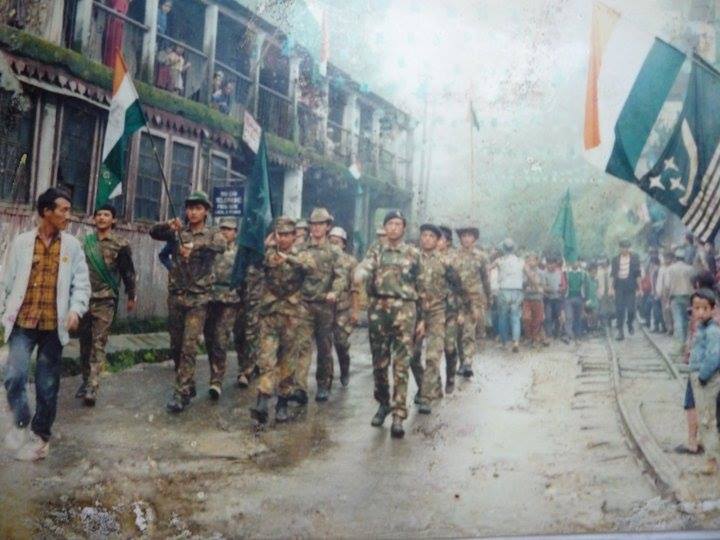
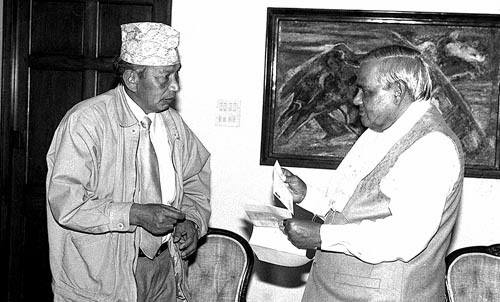
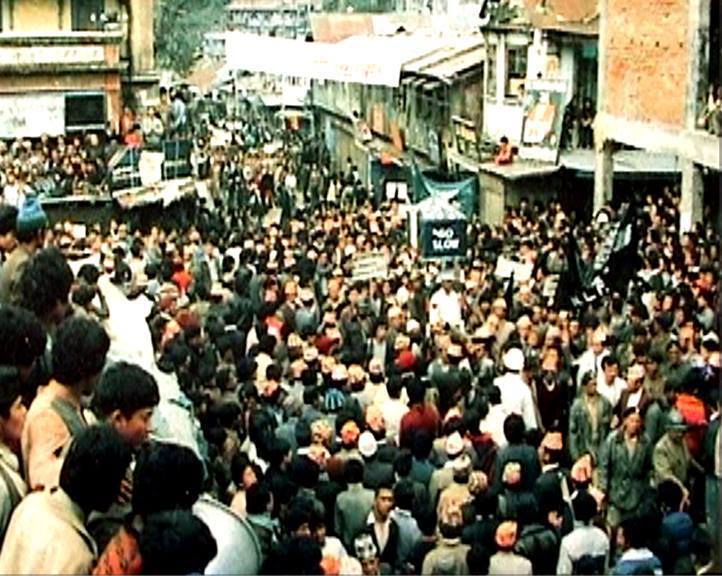
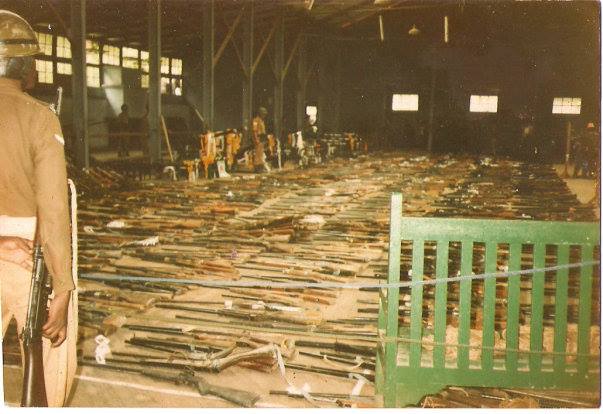
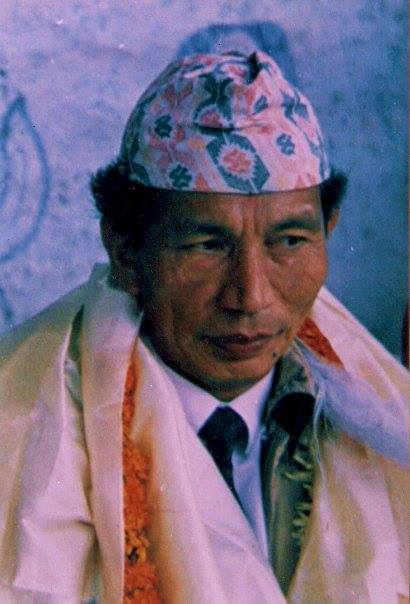
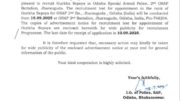
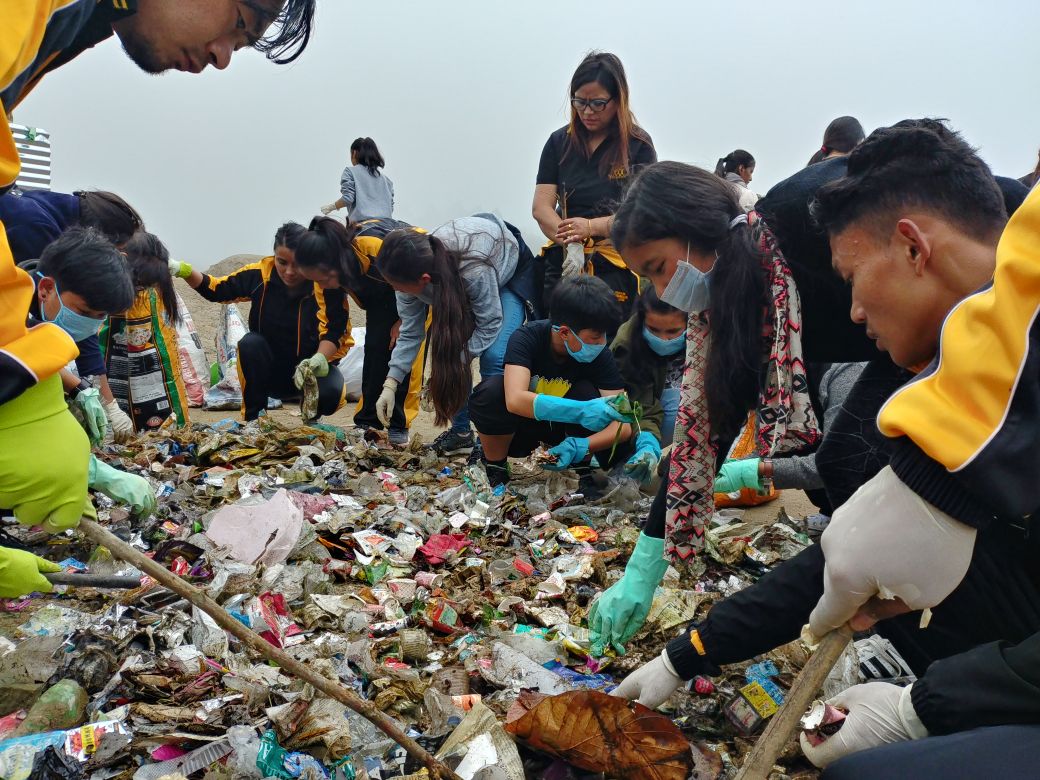


We admired Subash Ghising for his historical knowledge, his unbeatable claim of Gorkhaland then. His lambasting speeches threatening Jyoti Basu were worth listening then. Only mistake he committed was his solitary decision to sign DGHC dropping the main demand (which he too didn’t knew).